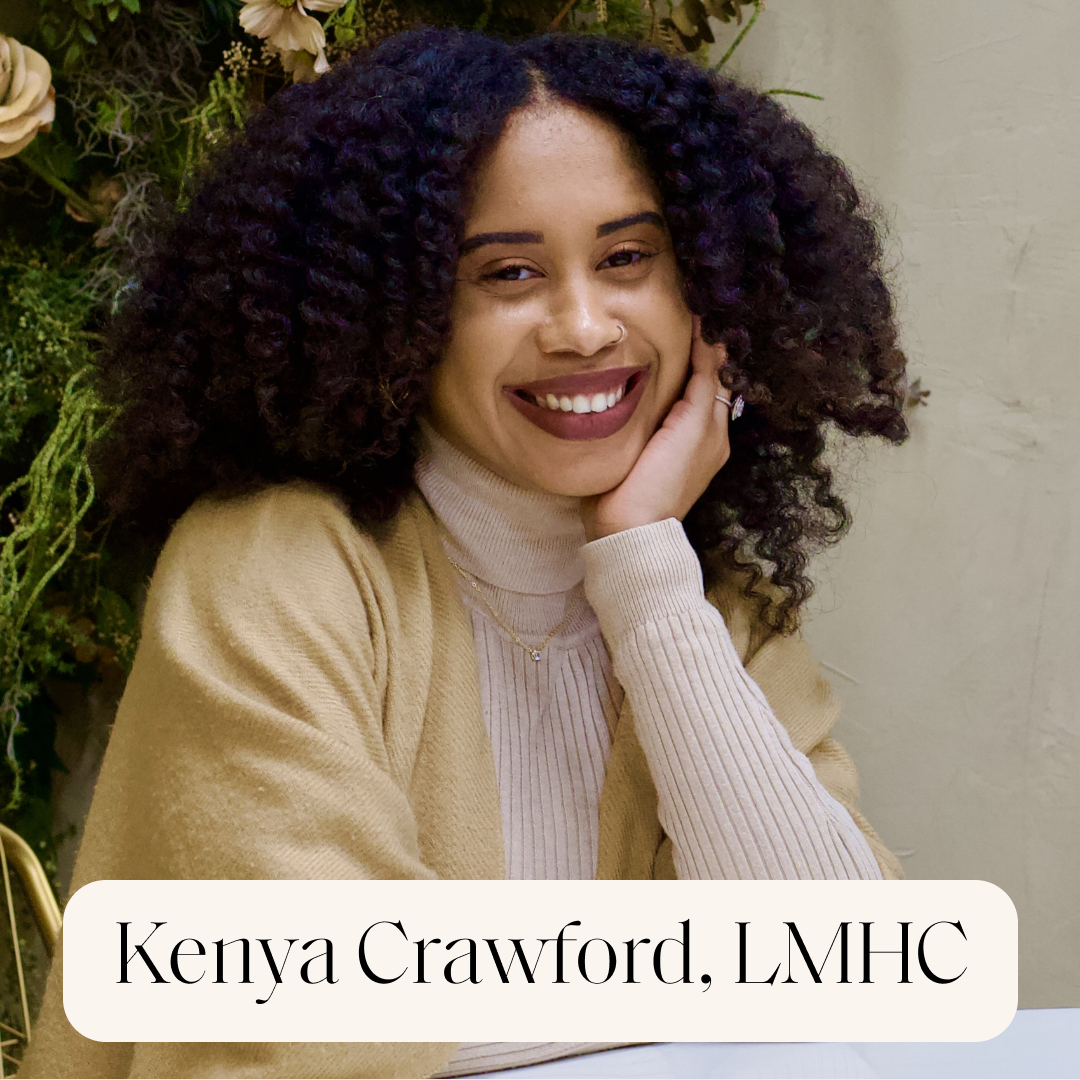-
Kenya Crawford (she/they/name), M.A., Ed.M, LMHC, is the CEO of Kenya Crawford Consulting, the Founder of Cultivating Healers, an award-winning licensed psychotherapist, racial equity consultant, and coach creating healing and liberating spaces to dismantle oppressive systems. As the Founder of Cultivating Healers Kenya supports therapists in building anti-racist, sustainable, and inclusive practices through CEU trainings, support groups, and coaching. Over the past decade, Kenya has supported international and domestic clients in their anti-racism journey. Kenya’s work has been featured in Huffington Post, Essence, Mindbody Green, and Popsugar, to name a few.
-
Due to the nature of this product, all sales are final and we are unable to offer refunds. If you are no longer able to attend a group, email us at info@kenyacrawford.com and we can transfer your confirmation to the following group.
-
Kenya Crawford, LMHC is recognized by the New York State Education Department's State Board for Mental Health Practitioners as an approved provider of continuing education for licensed mental health counselors. #MHC-0269. Kenya Crawford, LMHC is recognized by the New York State Education Department's State Board for Social Work as an approved provider of continuing education for licensed social workers #SW-0736.
Kenya Crawford, LLC has been approved by NBCC as an Approved Continuing Education Provider, ACEP No. 7470.Refund Policy
All Sales Final. Due to the nature of our CEU trainings and support groups, all sales are final, and we are unable to offer refunds once a purchase has been made.
Transfer Policy
If you are no longer able to attend a scheduled training or group session, you may request a one-time transfer to a future session of the same group or training.
To request a transfer: Email info@kenyacrawford.com with your name, order confirmation number, and the session you originally registered for. Indicate which future session you would like to transfer your confirmation to. Requests must be made at least 48 hours before the session start date to be eligible for transfer.
Transfers are subject to availability and must be used within six months of the original purchase date. For any additional questions regarding this policy, please contact us at info@kenyacrawford.com
Recording Policy
If you are unable to attend the live training session, you may request access to a recording of the session. Please note the following guidelines:
Access & Expiration: The recording link will be available for 30 days from the date of issuance. After this period, the link will expire, and we will not be able to reissue access. We strongly encourage you to watch the recording as soon as possible.
CEU Credit Eligibility: While the recording provides valuable insights, CEU credits can only be awarded to participants who attend the entire live training session. This policy is mandated by our CEU provider to ensure full engagement with the course material.
Requesting a Recording: If you require access to a recording due to unforeseen circumstances, please email info@kenyacrawford.com with your name and registration details. For further inquiries regarding recordings, please reach out to info@kenyacrawford.com.












